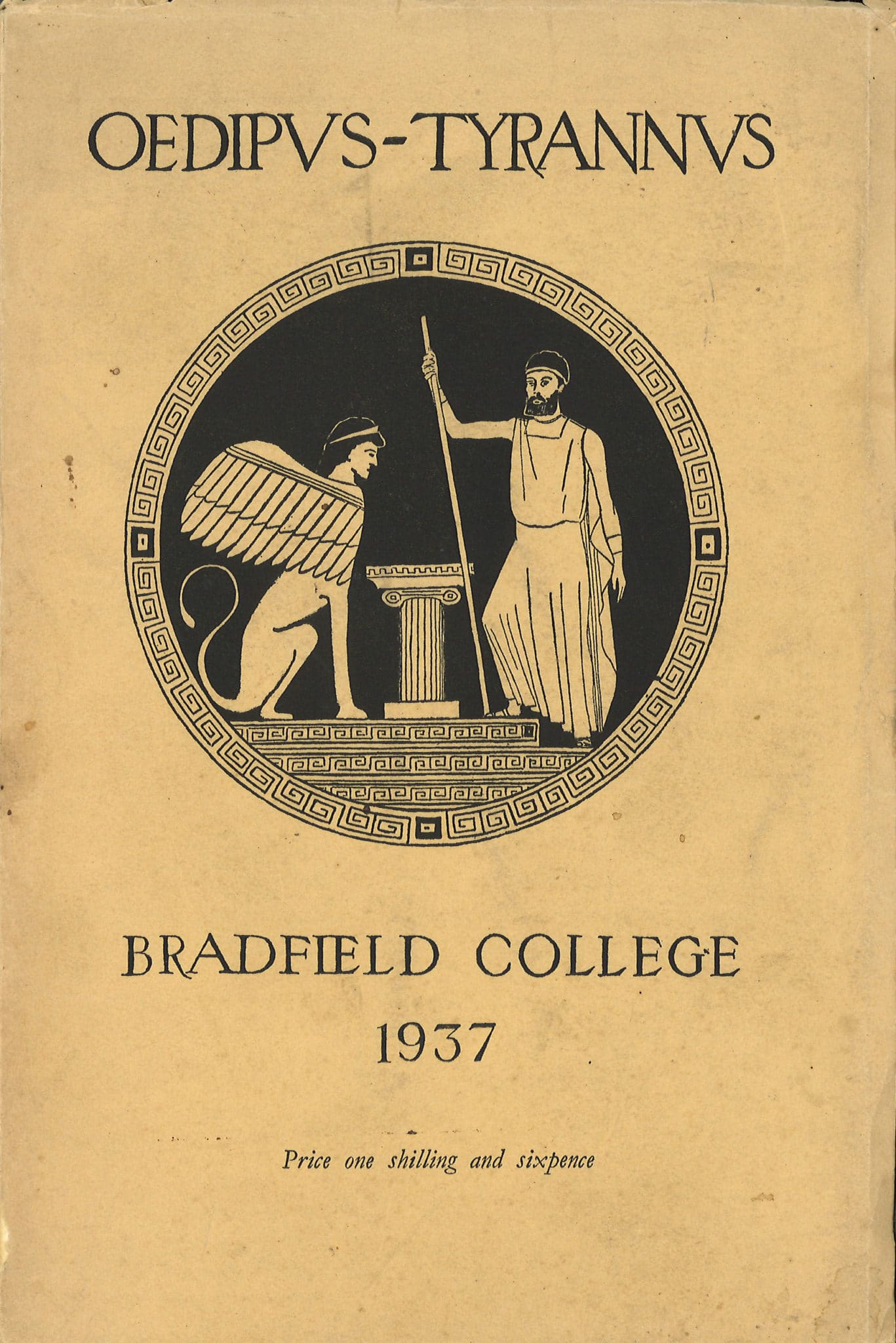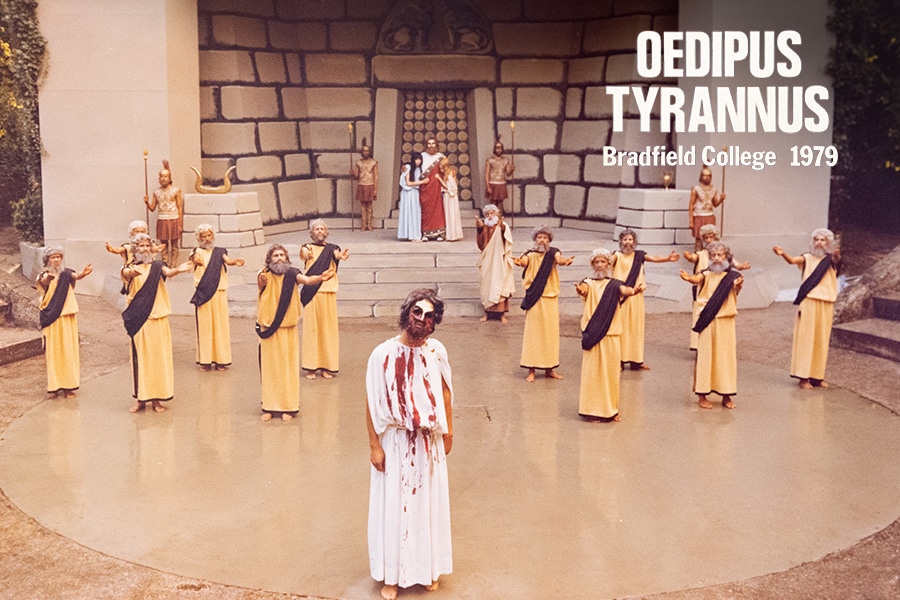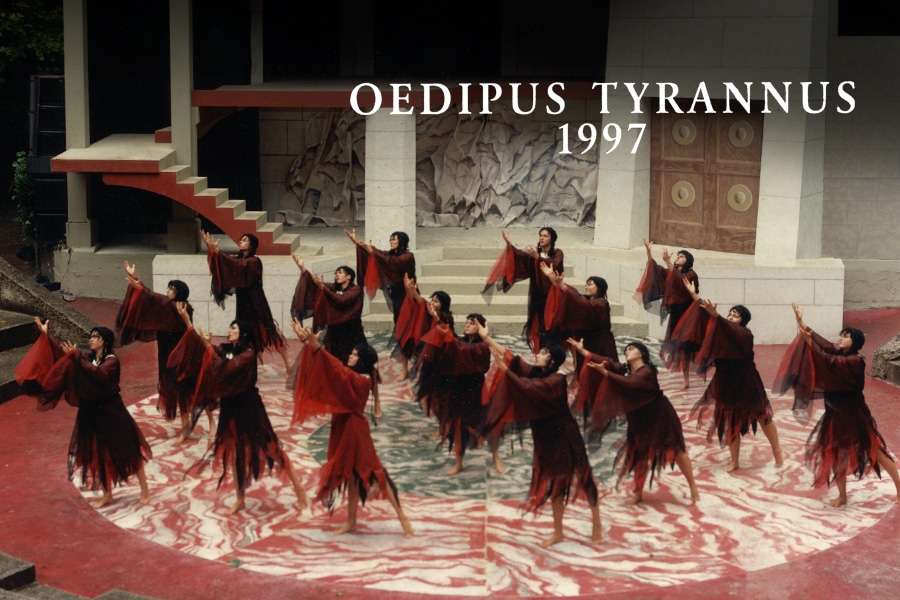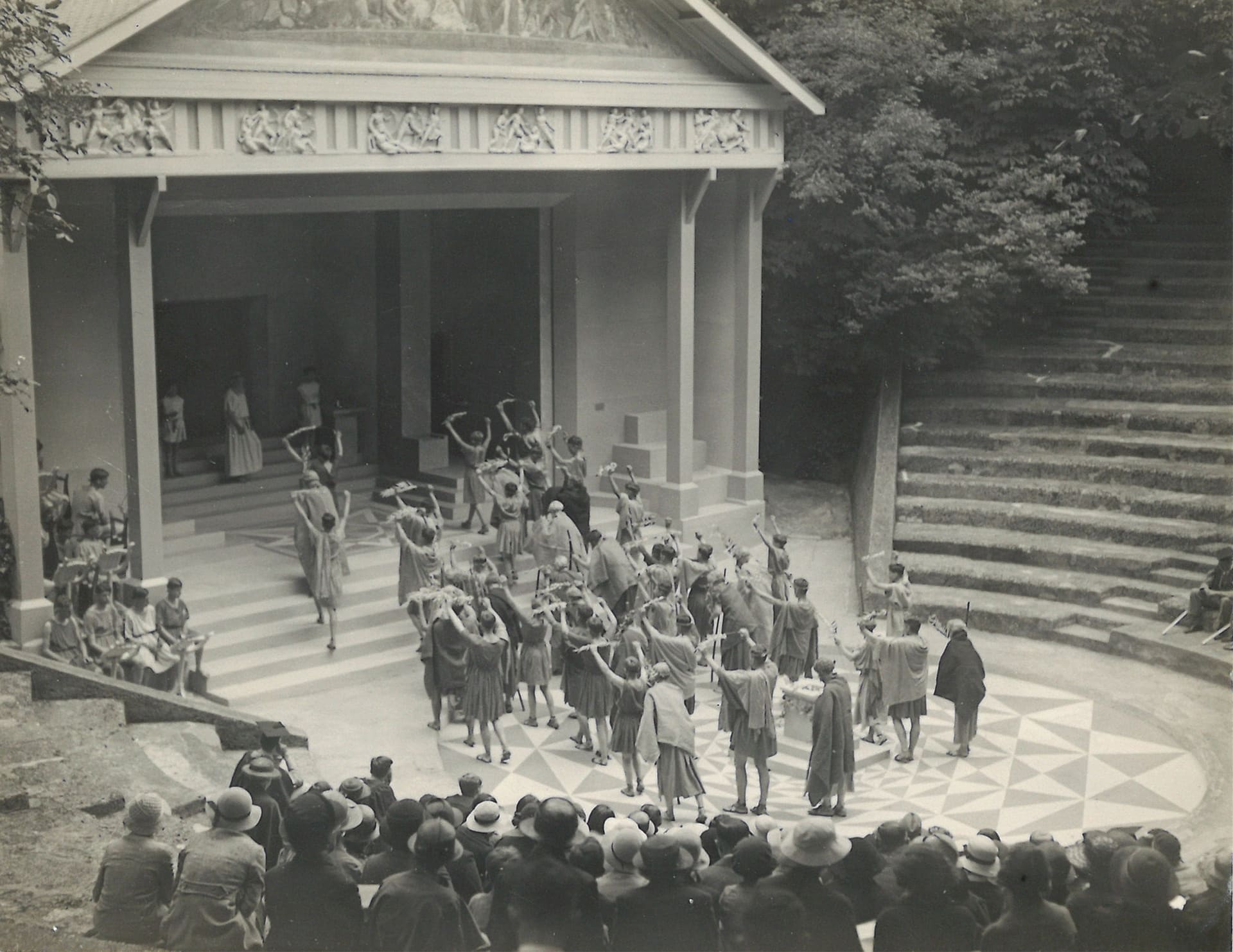
It has been felt for some time that this, probably the greatest tragedy of all time, should be presented in this theatre.
Cecil Bellamy, Producer 'Oedipus Tyrannus', 1937
Oedipus Tyrannus was first performed in the Greek Theatre in 1937. Remarking on its introduction to the Bradfield cycle, Producer Cecil Bellamy wrote in his programme notes:
“In the long history of Bradfield Greek Plays no production of the Oedipus Tyrannus has been given until this year. It has been felt for some time that this, probably the greatest tragedy of all time, should be presented in this theatre. We have all felt the magnitude of the task which we have undertaken. How far the experiment of including this play in the Bradfield cycle is a success will be for our audiences to say, and we can only hope that we have succeeded in presenting the play to them in such a way as to enable them to realize its beauty and greatness.”
Few present-day productions present so many technical problems to the musician as the Bradfield Greek Play
L.G. Thorne, Director of Music, 1937
Much like the score to the 2023 production, the music for the 1937 play was specially composed by then Director of Music, L.G. Thorne. He noted at the time that the setting of music to Greek Drama had, since the close of the 19th century, evidenced two completely contrasted methods. Productions at Oxford and Cambridge had been provided with modern choral and orchestral music while at Bradfield, except on two of the previous 14 occasions, the music had been fashioned largely according to the custom of the ancient Greeks. He went on to state: “Few present-day productions present so many technical problems to the musician as the Bradfield Greek Play, as regards to both the composition of suitable music an its performance.” In his composition, the main accompaniment to the Chorus was supplied by six lyres and four auloi, models of authentic Greek instruments constructed in 1900 for Bradfield productions.
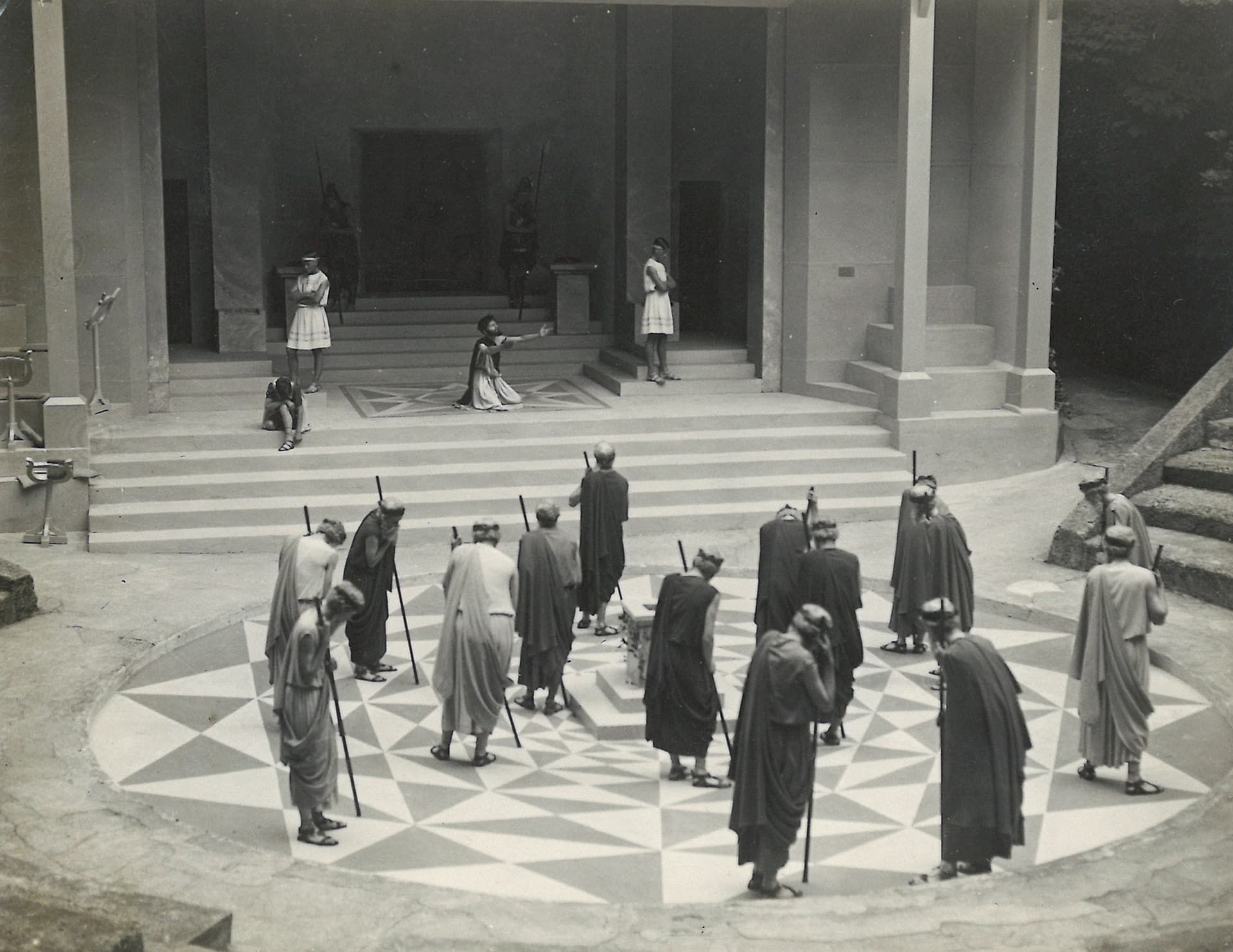
The stone is still as hard, and the cushions as inadequate as the Greeks themselves, no doubt, found them.
A.J.Hunt, Assistant Producer, 'Oedipus Tyrannus'. 1937
Commenting on the the tradition and authenticity of Greek Theatre, A.J.Hunt, Assistant Producer, wrote in his programme notes: “We can approach a performance of the Oedipus not as an archaic survival, but in the same sort of spirit as the Greeks themselves. The emotional tone is modified to suit our taste. The climate has successfully naturalized the theatre. But the stone is still as hard, and the cushions as inadequate as the Greeks themselves, no doubt, found them.”
